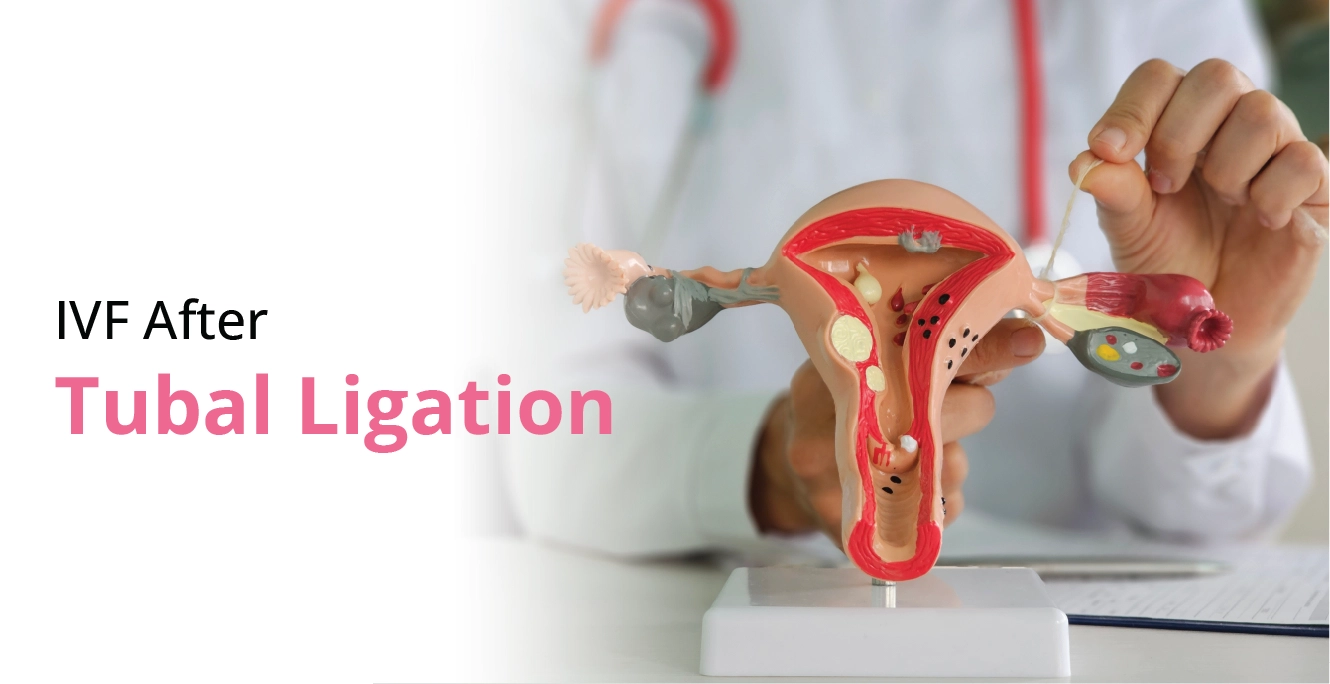Surrogacy Support
Surrogacy is a reproductive method where a woman (surrogate) carries a baby for another person or couple. There are two types: traditional, where the surrogate is biologically related to the child and gestational, where the surrogate has no genetic link, using IVF.
What is Surrogacy?
Surrogacy is an assisted reproduction technique where a woman, known as a surrogate, carries and births a baby for another individual or couple.
There are two primary types of surrogacy: traditional and gestational.
-
In traditional surrogacy, the surrogate’s own egg is fertilized by the intended father’s sperm, making her the biological mother of the child.
-
In gestational surrogacy, an embryo formed through IVF using the intended parents’ or donors’ eggs and sperm is implanted into a surrogate who has no genetic link to the child.
Surrogacy is often selected by those who cannot conceive or carry a pregnancy due to medical reasons, providing them with the opportunity to have a biological child.
Role of IVF in Surrogacy
Surrogacy offers a path to parenthood for those who cannot carry a pregnancy to term.
Here’s how surrogacy integrates with IVF:
-
Candidates for Surrogacy: Surrogacy via IVF is often chosen by:
-
Women with uterine issues or absence of a uterus.
-
Those with health conditions make pregnancy risky.
-
Same-sex male couples.
-
Single individuals who want a biological child.
-
-
Gestational Surrogacy: The surrogate mother carries an embryo created through IVF. The parents provide the sperm and egg, or donor gametes are used, ensuring the surrogate has no genetic link to the child.
-
IVF Process: The IVF procedure involves stimulating the intended mother’s ovaries to produce eggs, retrieving them and fertilising them with sperm in a lab. The resulting embryo is then transferred to the surrogate’s uterus.
-
Medical Screening and Matching: Surrogates undergo screenings to ensure they are physically and mentally fit for pregnancy. Matching intended parents with surrogates involves aligning expectations and ensuring compatibility.
-
Psychological Support: Both surrogates and intended parents receive counselling to prepare them for the emotional aspects of the surrogacy journey.
-
Pregnancy and Delivery: Once the surrogate becomes pregnant, she receives regular prenatal care. The intended parents are usually involved in the pregnancy journey, attending medical appointments and being present at the birth.
What to Expect in Surrogacy Procedure?
Surrogacy is a multi-step process designed to help individuals or couples who cannot conceive or carry a pregnancy. The key steps are:
-
Decision and Research: The intended parents decide on surrogacy and conduct thorough research to understand the process, legalities and financial implications.
-
Choosing a Surrogacy Agency: Many intended parents work with a surrogacy agency to navigate the process. Agencies help match intended parents with a suitable surrogate.
-
Finding a Surrogate: Surrogates can be found through agencies, clinics, or personal connections. Surrogates undergo rigorous screenings – medical and psychological.
-
Legal Contracts: Both parties, the surrogate and intended parents, sign legal contracts. These agreements outline each party’s rights, responsibilities and expectations.
-
Medical Preparation: For gestational surrogacy, the intended mother or egg donor undergoes an egg retrieval procedure. The eggs are then fertilised with the intended father’s or donor’s sperm to create embryos.
-
Embryo Transfer: The surrogate undergoes a medical procedure to transfer the embryo into her uterus.
-
Pregnancy and Monitoring: Once the surrogate is confirmed pregnant, she receives regular prenatal care to monitor the health of the baby and herself.
-
Birth and Legal Finalisation: The surrogate delivers the baby and legal procedures are followed to ensure the intended parents are recognised as the legal parents. This may involve court proceedings depending on local laws.
Why Choose Us
Choosing the right fertility clinic is crucial for starting your family. At Birla Fertility & IVF, we offer personalised care with expert specialists guiding you every step of the way. Our advanced labs and outstanding success rates have helped over 2,30,000 patients achieve their dream of parenthood.
Success Rate
Frequently Asked Questions
Recent Blogs
Book an appointment
Hassle-Free Appointment Booking
Select Preferences
I know my doctor
Surrogacy Cost in Different Cities
- Cost of Surrogacy in Jalandhar
- Surrogacy Cost in India
- Cost of Surrogacy in Patna
- Cost of Surrogacy in Siliguri
- Cost of Surrogacy in Perinthalmanna
- Cost of Surrogacy in Vijayapura
- Cost of Surrogacy in Mumbai
- Cost of Surrogacy in Kolar
- Cost of Surrogacy in Thrissur
- Cost of Surrogacy in Salem
- Cost of Surrogacy in Palakkad
- Cost of Surrogacy in Kannur
- Cost of Surrogacy in Kozhikode
- Cost of Surrogacy in Bhopal
- Cost of Surrogacy in Indore
- Cost of Surrogacy in Jaipur
- Cost of Surrogacy in Nagpur
- Cost of Surrogacy in Raipur
- Cost of Surrogacy in Guwahati
- Cost of Surrogacy in Chandigarh
- Cost of Surrogacy in Ranchi
- Cost of Surrogacy in Ahmedabad
- Cost of Surrogacy in Surat
- Cost of Surrogacy in Cuttack
- Cost of Surrogacy in Bhubaneswar
- Cost of Surrogacy in Howrah
- Cost of Surrogacy in Kolkata
- Cost of Surrogacy in Meerut
- Cost of Surrogacy in Allahabad
- Cost of Surrogacy in Noida
- Cost of Surrogacy in Gorakhpur
- Cost of Surrogacy in Varanasi
- Cost of Surrogacy in Lucknow
- Cost of Surrogacy in Rewari
- Cost of Surrogacy in Gurgaon
- Cost of Surrogacy in Delhi
Surrogacy Treatment in Different Cities
- Surrogacy Treatment in Jalandhar
- Surrogacy Treatment in Siliguri
- Surrogacy Treatment in Perinthalmanna
- Surrogacy Treatment in Patna
- Surrogacy Treatment in Chennai
- Surrogacy Treatment in Vijayapura
- Surrogacy Treatment in Mumbai
- Surrogacy Treatment in Bangalore
- Surrogacy Treatment in Thrissur
- Surrogacy Treatment in Salem
- Surrogacy Treatment in Palakkad
- Surrogacy Treatment in Mangalore
- Surrogacy Treatment in Kannur
- Surrogacy Treatment in kozhikode
- Surrogacy Treatment in Bhopal
- Surrogacy Treatment in Indore
- Surrogacy Treatment in Hyderabad
- Surrogacy Treatment in Nagpur
- Surrogacy Treatment in Jaipur
- Surrogacy Treatment in Raipur
- Surrogacy Treatment in Guwahati
- Surrogacy Treatment in Chandigarh
- Surrogacy Treatment in Ranchi
- Surrogacy Treatment in Ahmedabad
- Surrogacy Treatment in Surat
- Surrogacy Treatment in Cuttack
- Surrogacy Treatment in Bhubaneswar
- Surrogacy Treatment in Howrah
- Surrogacy Treatment in Kolkata
- Surrogacy Treatment in Meerut
- Surrogacy Treatment in Prayagraj
- Surrogacy Treatment in Rewari
- Surrogacy Treatment in lucknow
- Surrogacy Treatment in Varanasi
- Surrogacy Treatment in Gorakhpur
- Surrogacy Treatment in Noida
- Surrogacy Treatment in Gurgaon
- Surrogacy Treatment in Delhi

 Our Centers
Our Centers
































